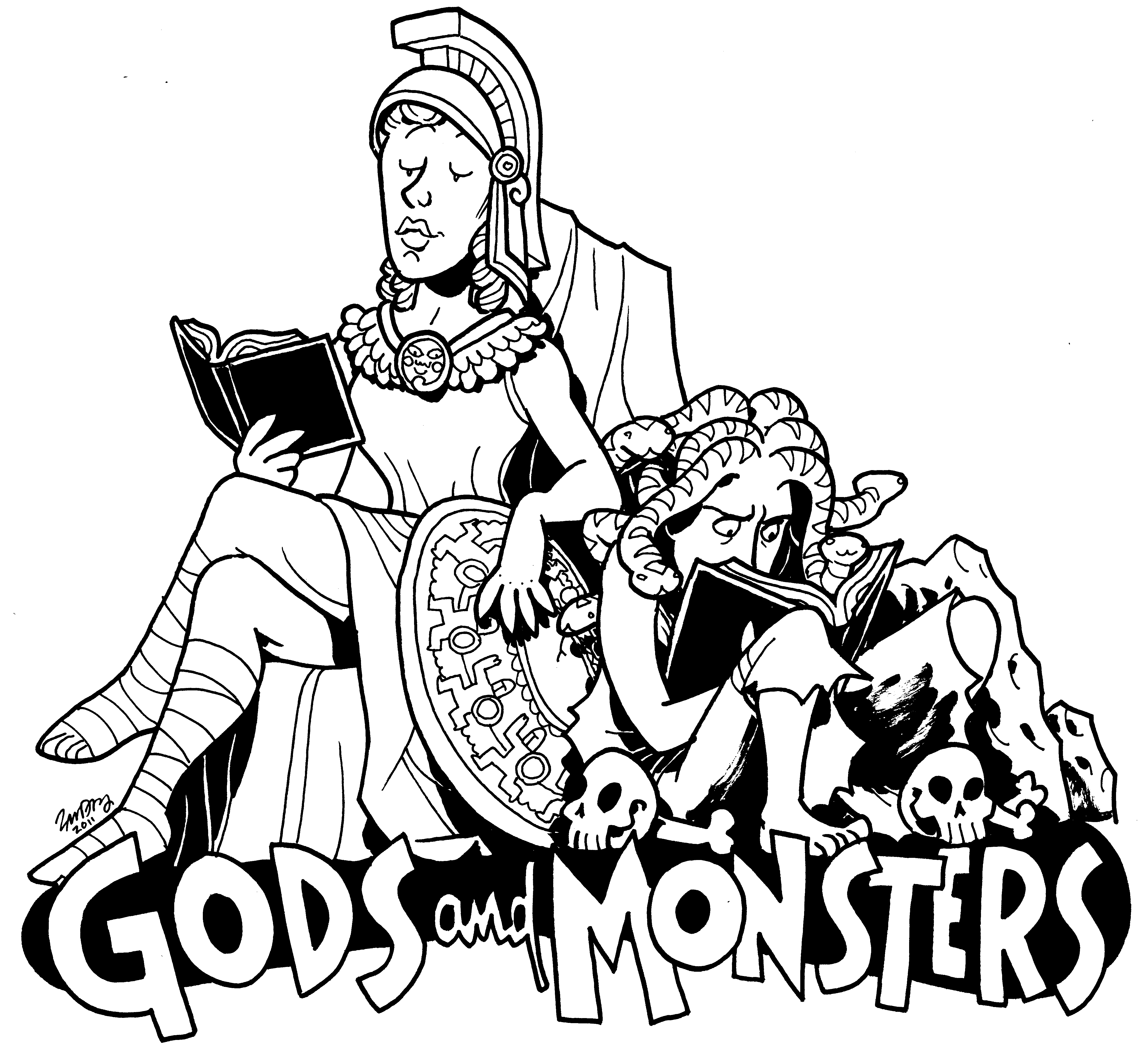Sandman Read Wk 2: THE DOLL’S HOUSE
Sunday, December 14th, 2014
It is 9:30 on Sunday night, and I’m staring at this page, and it’s staring back to me, and I wonder, how on earth can I do justice to the sprawl of flaming crazy awesomeness that is volume 2 of The Sandman, The Doll’s House?
If you’re on twitter, join us with the hashtag #SandMN. If you’re not, then follow along here on Mondays. The reading schedule is here.
This collection opens with #9 “Tales in the Sand”, an African “folk tale” made up entirely by Gaiman, and refers to other tales, which he also made up.
(You really have to watch out for Gaiman. In American Gods, he made up some Slavic goddess, Zorja Polunochnaya, and depending on how you look her up online it’s really easy to believe that she was an actual goddess, and not something Neil just pulled out of his…head.)
We get the story of Nada, the woman we briefly met in #4, A Hope in Hell, who had been imprisoned there after rejecting Dream, or Kai’ kul, the incarnation of her people. If this is the men’s version, how much more scathing must the women’s version of it be? We got some indication of this before, but Dream can be a real jerk. Also in this story, we get images of hearts, as well as the difference between men’s and women’s stories, both of which will be themes throughout the series.
#10, “The Doll’s House” in which we meet the twins, Desire and Despair, as well as Rose Walker, who learns she is the granddaughter of Unity Kinkaid, who was impregnated and had a baby while she slept in issue #1. When Rose dreams, the page goes sideways. We get to see one of my favorite recurring characters, Goldie the gargoyle, who adorably says “meep” and “aarkle”. We get yet another appearance of the three witches, one of Gaiman’s favorite myths that he deploys throughout his work. And we meet the Corinthian, an escaped dream, and a very bad man.
#11 “Moving In.” Rose moves into a house in Florida so she can track down her younger brother Jed. She’s watched by Matthew, Dream’s talking raven, who used to be Matthew Cable in the series Swamp Thing. Jed is in a very bad place, and is having odd dreams that are homages to Windsor McKay’s Little Nemo in Slumberland.
#12 “Playing House” we meet Lyta and Hector Hall who have been playing Sandman under the tutelage of two escaped dreams. Hector is really a ghost, but Lyta has been in a suspended pregnancy. Dream, being a jerk again: “The child you have carried so long in dreams. That child is mine. Take good care of it. One day I will come for it.” And then he lets Jed get away and fall into the hand of the Corinthian.
#13 “Men of Good Fortune” seems plopped in there, but it’s the prior engagement Dream mentions when he runs off after telling Lyta he’ll be back for the child. We meet a guy named Hob, but even better we meet some hack playwrite named Will. Dream talks to them both, and interesting things happen. This is one of my favorite issues (all the ones with Shakespeare are.)
#14 “Collectors.” That’s Neil Gaiman modeling for the Corinthian on the cover. If you didn’t like the horror in issue 6, 24 Hours, this one is pretty horrific too. But Dream unmakes the Corinthian, so while he may be a jerk, he’s pretty badass. Plus Gilbert comes back with Jed, yay!
#15 “Into the Night.” Barbie has the coolest dreams, doesn’t she?
#16 “Lost Hearts.” That’s Neil Gaiman again on the cover. Does it bug anyone else that he is his own Mary Sue/model for the King of Dreams?
Gilbert turns out to be a place, Fiddler’s Green, and while he can’t stand in for the death of Rose, Unity can. I love this exchange:
Dream: I don’t understand–
Unity: Of course you don’t. You’re obviously not very bright, but I wouldn’t let it bother you.
And we learn that the whole thing has been a long game played by Desire to bring down Dream, and he threatens Desire, whose house is a doll.
I love this, too:
Dream: We of the endless are servants of the living–we are NOT their masters. WE exist because they know, deep in their hearts, that we exist. When the last living thing has left this universe, then our task will be done. And we do not manipulate them. If anything they manipulate us. We are their toys. Their dolls, if you will.
So, what did everyone else think?






